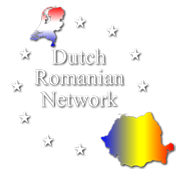Many Dutch companies have found their way to Romania. For years, 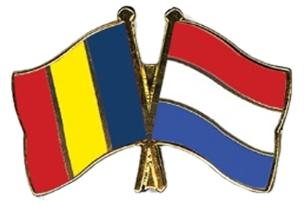 the Netherlands has been the number 1 foreign investor in Romania and a top 10 trading partner. It’s clear that Dutch companies enjoy doing business here, and even shifted part of their production and other facilities for economic and strategic reasons. Let’s hear from some Dutch companies about the success of their businesses in Romania.
the Netherlands has been the number 1 foreign investor in Romania and a top 10 trading partner. It’s clear that Dutch companies enjoy doing business here, and even shifted part of their production and other facilities for economic and strategic reasons. Let’s hear from some Dutch companies about the success of their businesses in Romania.
Dragos Geletu, managing director Kuijken Logistics Group (KLG)
Could you tell us about your company in Romania?
Geletu: KLG Europe offers worldwide logistic services, from transport by road, water or rail to value added services in our modern warehouses. KLG is family owned company that has 100 years of history, 3 generations, with its headquarters in Venlo, the Netherlands. We opened KLG Romania 12 years 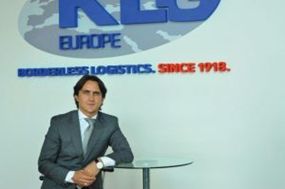 ago starting from zero, now having a company of EUR 40 million turnover, over 500 employees, over 70.000 sq m of warehousing space with modern technologies and an investment of over EUR 30 million. In Romania, KLG has experienced one of the most dynamic growth over the last years. The head office of KLG Romania is located in Bucharest, we are active in 8 other locations: Cluj Napoca, Constanta, Craiova, Brasov, Timisoara, Bacau, Buzau and Sibiu.
ago starting from zero, now having a company of EUR 40 million turnover, over 500 employees, over 70.000 sq m of warehousing space with modern technologies and an investment of over EUR 30 million. In Romania, KLG has experienced one of the most dynamic growth over the last years. The head office of KLG Romania is located in Bucharest, we are active in 8 other locations: Cluj Napoca, Constanta, Craiova, Brasov, Timisoara, Bacau, Buzau and Sibiu.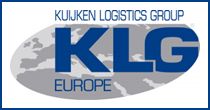
What makes doing business in Romania attractive?
Geletu: KLG decided to invest in Romania especially for the great potential of people. That was the main reason and it is still important element of our future strategy. We believe in the potential of Romania and its people.
How do you see your business develop in the coming years?
Geletu: We will for sure grow in the same way as for the last years probably not only organic but also through investments and acquisitions.
Vassilis Stavrou, CEO Mega Image(Ahold-Delhaize)
Could you tell us about your company in Romania?
Stavrou: Since our first supermarket opened in 1995, we have grown to become a loved brand on the Romanian market, with a particularly strong presence in Bucharest as the no. 1 supermarket awarded by our clients. At this moment, our 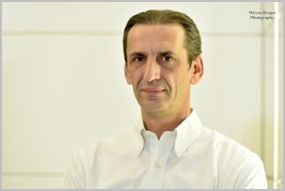 network has over 600 stores around the country, with a team of over 11.000 people working together to bring fresh inspiration to our customers every day and helping them enjoy their life.
network has over 600 stores around the country, with a team of over 11.000 people working together to bring fresh inspiration to our customers every day and helping them enjoy their life.
At the heart of Mega Image growth and expansion on the local market is the unique philosophy based on the simple idea of making our customers enjoy their life. To bring this philosophy to life, our vital business assets are proximity, enhanced food experience, best shopping experience, quality and innovation. Our customers turn to us for the difference we make through innovative, great value products and best price, and also through our stores design, whether they are looking for healthy food, cooking inspiration or just something different to celebrate a special occasion.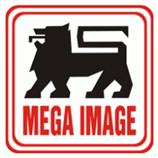
What makes doing business in Romania attractive?
Stavrou: The competitive retail market is moving at high speed, with a continuous evolution and growth every year. Romanian consumers have an imperative role in guiding the entire retail market, acting as very active consumers, adopters of recent trends and demanding for best offers and quality services. In the latest years, Romanian consumers have become more attentive to what they buy and, in the meantime, they have added a new selection filter for any purchase, along with price and quality: it’s about the store experience.In a highly competitive market with high demands from consumers, Mega Image stands out as more than a supermarket, but as one of Romanians’ best loved and responsible retailers. The secret behind this achievement is a constant meet of consumers’ needs through food experience and an inspiring shopping experience in all the stores, especially in the Concept Stores that offer an ultimate customer experience.
How do you see your business develop in the coming years?
Stavrou: We’ve started this journey more than 20 years ago and we believe we made a valuable change in what the shopping experience means for Romanians. We’ll go further and continue to be more than a supermarket, but an inspiring brand, continuously evolving and bringing fresh inspiration every day.
Herman Wierenga, managing director ORTEC
Could you tell us about your company in Romania?
Wierenga: The story of ORTEC Central and Eastern Europe began in 2008 when I, together with a colleague, established a division in Bucharest, to support ORTEC’s customers in the region. Now, we have become one of the largest D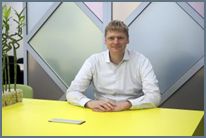 utch tech companies in Romania and continuously strive to positively impact the market and the next IT&C generation, through smart mathematical solutions, a strong regional presence, partnerships with universities and more. During our 10 years of activity, we developed at a sustainable pace, we hired more people every year, reaching 160 people and grew our customer base to over 100 organizations. The most profitable areas for us are transport, logistics, and retail. ORTEC will continue to invest in our Romanian operations. We will start up new research & development teams in Bucharest and also in other areas we are continuously expanding.
utch tech companies in Romania and continuously strive to positively impact the market and the next IT&C generation, through smart mathematical solutions, a strong regional presence, partnerships with universities and more. During our 10 years of activity, we developed at a sustainable pace, we hired more people every year, reaching 160 people and grew our customer base to over 100 organizations. The most profitable areas for us are transport, logistics, and retail. ORTEC will continue to invest in our Romanian operations. We will start up new research & development teams in Bucharest and also in other areas we are continuously expanding.
What makes doing business in Romania attractive?
Wierenga: We consider Romania as much more than an outsourcing location: it is a great place for building a business, to expand our worldwide presence and to excel in research, development & innovation. Romania has a lot of talented IT professionals who are flexible, smart and independent. We are global leader in the field of Planning & Optimization, we make, sell and implement our own products and our developers in Bucharest work with the newest technologies and innovations. I think this is also the future for Romania’s IT sector: less focus on outsourcing and more focus on software creation, research & development. We’ve had the pleasure of working with leading companies delivering added value to their business-critical processes through the power of mathematics. By creating and developing ORTEC’s collaboration with universities, we bring together our experts, support education with best practices in the field and provide a platform for research, development and innovation.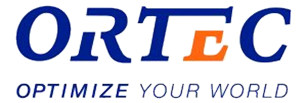
How do you see your business develop in the coming years? Wierenga: We will continue our rapid growth in Central and Eastern Europe from our regional headquarters in Bucharest. The demand for our solutions in the region is growing, as companies understand more and more the need for efficiency, automation and optimization. And, because our Romanian staff is also very appreciated by our customers outside the CEE region, we also foresee an expansion of the number of people working for global projects and software development.
Michal Szczurek, CEO ING Bank Romania
Could you tell us about your company in Romania?
Szczurek: ING Bank Romania is the first foreign bank to enter the Romanian market after communism, 24 years ago, and since then it 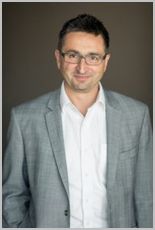 has been a benchmark of innovation. We were the first supplier of electronic banking services in 1995 and, in 2004, the first to introduce the SelfBank concept. Now ING is well-known for its digital services, including internet banking services for both retail and corporate, and its banking products available online on all three business lines: wholesale banking, mid-corporate and retail.With great focus on customer experience put in by the 3000 people working for ING in the country, we reported the highest organic growth among the top ten banks in the country and finished 2017 as the 6th bank according to assets and 4th according to profit.
has been a benchmark of innovation. We were the first supplier of electronic banking services in 1995 and, in 2004, the first to introduce the SelfBank concept. Now ING is well-known for its digital services, including internet banking services for both retail and corporate, and its banking products available online on all three business lines: wholesale banking, mid-corporate and retail.With great focus on customer experience put in by the 3000 people working for ING in the country, we reported the highest organic growth among the top ten banks in the country and finished 2017 as the 6th bank according to assets and 4th according to profit.
What makes doing business in Romania attractive?
Szczurek: If I were to choose the top three reasons why doing business in Romania is attractive, I would summarize those in three areas: dynamic growth in banking sector; demanding clients and great people.Romania is a growth market and we believe there is room for growth and innovation, emphasizing on digital and technological advancement. Our clients demand more of us every day comparing us not with other banks, but with top digital platforms worldwide.
We have great people within ING who thrive on change and innovation and we continue to look for and find great people in Romania that help us grow and meet the challenges our clients raise.
The fast pace in which ING grew also demanded more involvement in the local communities in Romania. In the past four years, we grew our CSR investment from EUR 0.9 million to EUR 7.8 million, focusing on promoting entrepreneurship, empowering people to deal with financial problems, supporting urban development and community development programs.
How do you see your business develop in the coming years?
Szczurek: We invested approximately EUR 10 million per year in digitalizing our services and products so that we meet not only our customers’ needs today, but the global trends of tomorrow. We believe the rate of growth will remain positive and there is still room for organic growth on all business lines.
However, when it comes to banking services, I believe customer experience will be the game changer and I trust our fantastic ING team will continue to rise to the challenge to continuously improve customer experience.
Philip Aarsman, Managing Director Business Lease Romania
What are the focus points and the challenges for Business Lease in 2018?
Aarsman:Enough I would say. Business Lease has been on the Romanian market for over three years now and since the very beginning we have focused on CARE and Total Cost of Mobility optimization. The best solutions for our customers’ most pressing needs – this is our aim.
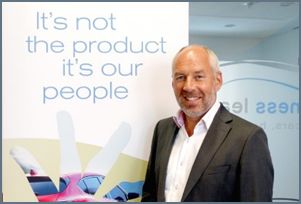 In 2018 we want to add new products to our portfolio in order to facilitate the need for personalized services required by fast growing industry segments, such as courier and distribution areas. We also want to introduce our clients to a new approach over full service operational leasing by consolidating our partnerships in which strategic focus areas such as cost, time and operational efficiency integrate client care.
In 2018 we want to add new products to our portfolio in order to facilitate the need for personalized services required by fast growing industry segments, such as courier and distribution areas. We also want to introduce our clients to a new approach over full service operational leasing by consolidating our partnerships in which strategic focus areas such as cost, time and operational efficiency integrate client care.
Business Lease starts the year committing to a new mission: Passion for Mobility, please check our new website. We are dedicated to bringing mobility to a new level by creating innovative mobility opportunities with new power trains (EV and Hybrid) and allowing users to integrate various means of transport: vehicle, bike, train, subway, car sharing etc.
What are the innovative solution Business Lease propose for fleet administration?
Aarsman:Business Lease has kept up with the changes and launched Connected Care, a program through which all the vehicles in our fleet are connected to a database recording online: their mileage, fuel consumption and other important notifications a driver might receive via its car dashboard. These data allow us to be efficient and proactive by directing our users in due time for servicing, thus optimizing costs and time. Our clients and users receive daily updated information about their vehicles and fuel consumption in order to manage and reduce the total costs of mobility.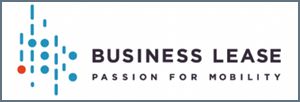
How will fleet management and operational leasing evolve in the next 5 years?
Aarsman: The demand for operational leasing services has grown and we expect this trend for the years to come mainly due to the fact that companies started to understand, valuate and appreciate the benefits of operational leasing in terms of administrative, process and as a result important financial advantages. This financing solution offers multiple benefits to companies by decreasing costs and time involved in the administration of the fleet. Vehicle fleet is after HR costs, still a significant part of the budget of many companies, as cars are an important working tool or employee benefit. Operational leasing offers companies the possibility not having to invest in their vehicle fleet, but to focus on their core business and to pay just for the usage, with no risks related to its depreciation or unexpected costs during the exploitation time.
Are electric and hybrid vehicles a solution for companies?
Aarsman:For vehicles with multiple stops during the day, driving an average distance of 100 km per day, such as LCVs, courier vehicles, as well passenger transport vehicles, electric vehicles could even be the best solution. In Romania, Business Lease is a pioneer in this area and has already clients who adopted electric solutions even before Rabla Plus program was introduced.
How do you feel the pulse of the operational leasing in Romania?
Aarsman:Bucharest remains at this moment the most deveoped area in terms of operational leasing consumption and we have recorded here our highest business increase. (International) companies are familiar with the concept, they used the service with good results in other countries and are willing to adopt it. The western part of the country where impressive results in terms of economic growth have been recorded is still in the phase of assimilating the concept. We have here a very solid community of local entrepreneurs who need to be trained into learning the advantages of operational leasing and understanding the benefits of outsourcing all fleet management time consuming operations and risks. We took up this challenge last year when we opened our new regional branch for Transilvania in Cluj because being close to your (potential) customers is crucial to start a business and develop the cooperation with them.
Loredana Van de WAART, Partner, GRUIA DUFAUT LAW OFFICE
How do foreign investors see the economic developments and the business climate in Romania, from your experience as a business attorney?
Van de Waart: Romania remains an attractive destination for foreign investors specializing in emerging markets, in the context of a strong economic growth of 6.9% in 2017, which is, unfortunately, based mainly on consumption. In order to become a privileged destination in the region for medium and long-term investments – the only ones able to reduce the gap between Romania and the rest of the European countries – we must come up with concrete projects 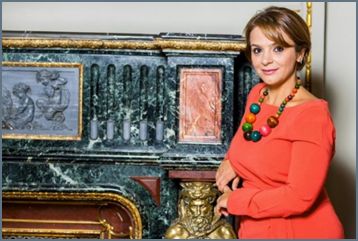 to present to investors. One solution would be to stop adopting so many strategies and instead to implement those already approved. It is a pity that, although Romania has recorded an important economic growth, this growth is not reflected in the living standard of the population. Why? Because Romania still lacks investments and stakeholders have shown that they are not able to ensure a competitive framework.
to present to investors. One solution would be to stop adopting so many strategies and instead to implement those already approved. It is a pity that, although Romania has recorded an important economic growth, this growth is not reflected in the living standard of the population. Why? Because Romania still lacks investments and stakeholders have shown that they are not able to ensure a competitive framework.
When deciding whether to enter a market or not, investors analyze several indicators, which concern: economic performance, political and legislative stability, market size, supply of logistics spaces, infrastructure status, labor costs, productivity. Or, the net foreign direct investment (FDI) flow recorded by Romania in 2016, according to the National Bank of Romania, was 4.5 billion euros (compared to 9.5 billion euros in 2008, before the crisis), significantly lower than the volume of investments attracted by countries in the region, such as Poland, the Czech Republic or Hungary. Unfortunately, last year’s fiscal and legal changes, poor infrastructure and even the accelerated rise in labor costs in some sectors are important challenges for foreign investors and local entrepreneurs alike. But the battle is not lost, the regional competition is undergoing, and Romania should take advantage of its business opportunities in various sectors and capitalize its strengths. Significant M&A transactions, as well as state investments are still expected in Romania. As far as the investment framework is concerned, Romania must abandon fiscal instability and diversify its fiscal incentives, in particular to attract investment in innovative technologies, research and development centers.
You have recently been elected as a member of the board of directors of the Dutch Chamber of Commerce in Romania. How can Romania attract more Dutch investments? What can be done?
Van de Waart: Indeed, in March, I have received the NRCC members’ vote for a membership in the Board. This vote honors me and also represents a challenge for me. The expectations of the business community reunited under the NRCC concern both the improvement of the business environment and the promotion and enforcement of the economic Dutch business model, which is particularly performant in terms of innovation and development, education policies, health. The Dutch economy is one of the most dynamic poles of the EU, both in terms of trade and industry. But, besides the reputation of the Dutch to excel in the art of trade, they are champions of innovation in many economic sectors. According to the “European Innovation Scoreboard” for 2017, published by the European Commission, the Netherlands is among the “innovation champions”, alongside Germany, Denmark, the UK and Sweden, which means that the results of these countries in innovation are well above the European Union average.In comparison, Romania is not even among “moderate innovators”, unlike other countries from our region, such as Croatia, Hungary, Poland, the Czech Republic or Slovakia; Romania is only part of the group of countries with “modest innovation”.
“European Innovation Scoreboard” for 2017, published by the European Commission, the Netherlands is among the “innovation champions”, alongside Germany, Denmark, the UK and Sweden, which means that the results of these countries in innovation are well above the European Union average.In comparison, Romania is not even among “moderate innovators”, unlike other countries from our region, such as Croatia, Hungary, Poland, the Czech Republic or Slovakia; Romania is only part of the group of countries with “modest innovation”.
Or, this is paradoxical, because Romania has a skilled labor force and it should create the economic and social conditions to keep this labor force in the country, while helping it grow (for example, by attracting more European funds). The EU offers significant funding to innovation, research and development projects, but Romania does not seem to realize their importance. Romania should take the Dutch example, as the Netherlands is a reservoir of research and development centers. Its key sectors are agro-food, high-tech systems and materials, chemicals and health, high tech and innovative technology, creative industry – exactly the sectors where Romania lacks development.
On the other hand, in order to attract new Dutch investments, Romania must prove legislative predictability and, more importantly, come up with coherent projects and demonstrate a firm attachment to European values. The Dutch are pragmatic and direct people, who value fairness and rigor.
How does the GRUIA DUFAUT Law Office support investors wishing to enter or develop their business on the local market? What distinguishes you from other law firms?
Van de Waart: Entering a market implies a global approach from investors. They need to understand the business environment and local market specificities and this is where we come in. We assist them from the very beginning, we try to have the best understanding of their business, of their objectives, to provide them with “tailor-made” solutions, compliant with the laws of Romania.
Our law firm has accumulated over 25 years of experience in the field of foreign investments. This allows us to come up with a double perspective – on Romanian and European law in general -, which enables us to successfully handle the matters entrusted to us by our clients, who are mainly French, Dutch, Italian, Belgian and Swiss investors.
We frequently advise and assist our clients in complex matters, corresponding to our main areas of expertise: M&A (company, asset sales/acquisitions, business transfers, greenfield investments), real-estate transactions (real-estate due diligence, transaction structuring, assistance during negotiations and document drafting), public procurement and PPP, labor law, fiscal law, competition law and European law. We also represent our clients in court, in litigations and commercial arbitration procedures.
This double perspective we offer to our clients is an important differentiating feature because it comes along with a thorough knowledge of case law. Then, although in law practice we can not talk about spectacular innovations, our vision of law enforcement and initiatives for the implementation of European models into Romanian practice are key elements that differentiate us.
Gerke Witteveen, President, Netherlands Romanian Chamber of Commerce (NRCC)
The NRCC is a network of organizations for any business with an interest in Dutch-Romanian business cooperation, irrespective of size or origin. Our almost 200 members are a variety of large corporations and SMEs, Dutch and Romanian, and spread across a wide range of sectors of the economy.
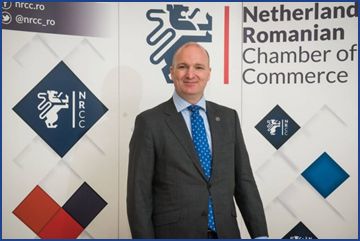 In terms of consolidating the business partnerships between the countries, we organize various events for the existing Dutch-Romanian business community. Our knowledge events serve to inform and support our members on current topics. Our networking events provide opportunities to meet each other and develop new business partnerships.
In terms of consolidating the business partnerships between the countries, we organize various events for the existing Dutch-Romanian business community. Our knowledge events serve to inform and support our members on current topics. Our networking events provide opportunities to meet each other and develop new business partnerships.
In Romania, the Dutch business community is very big compared to other countries from the region and it is a known fact that the Netherlands is the biggest source of foreign investments in Romania since many years now (NL accounts for 25 percent of the FDI in Romania according to National Bank of Romania in May 2017).
Today, the Dutch companies existing in Romania employ over 200.000 people, being both large corporations and small and medium sized companies or even individual entrepreneurs. This confirms the strong economic ties between the Netherlands and Romania. Moreover, the number of Dutch investors in Romania is expected to grow in the coming years, as we are seeing through NRCC studies and discussions with partners in NL.
Therefore, as you may know, on the 27th of April every year we celebrate our King Willem-Alexander birthday and we brought this celebration to Romania as well through our flagship yearly event NRCC Orange Night. This year it will be held on the 26th of April at Radisson Blu Bucharest together with Dutch-Romanian business community and our members. Through this event we strive to connect and link the two business communities in order for a long and great future collaboration.
